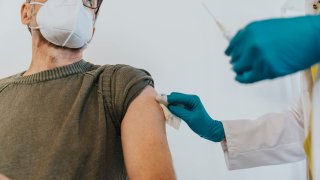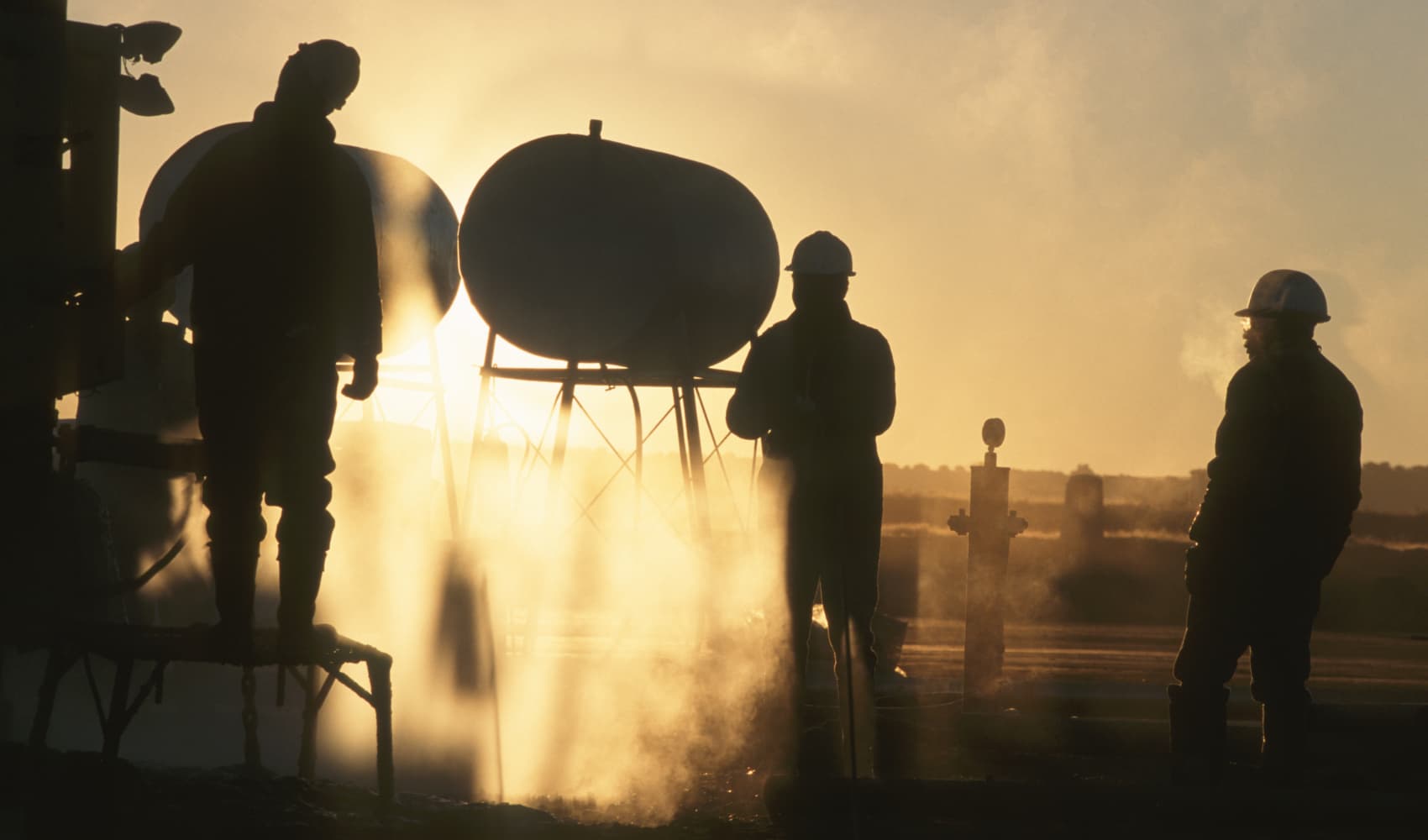
Covid cases are currently rising in all 50 states as the highly contagious delta variant spreads and vaccination rates level off. According to the Centers for Disease Control and Prevention, 70% of U.S. adults have received at least one dose of the vaccine — leaving roughly a third of the population unvaccinated.
Government organizations such as the Equal Employment Opportunity Commission have long made it clear that employers can require vaccination.
"The EEOC's guidance that came out in December [2020] made it clear and paved the way to say that employers can mandate vaccines and that this isn't considered a medical examination, which is prohibited by the Americans with Disabilities Act," attorney Renee Mattei Myers told CNBC Make It in Feb. 2021.
"The EEOC has said for a while now that so long as an employer provides reasonable accommodations for those with disabilities and sincerely held religious beliefs that preclude vaccination, an employer may require employees to get vaccinated," confirms Sharon Perley Masling, an attorney and director of workplace culture consulting at Morgan Lewis. "More recently, we've had two district courts both say that an employer in one case and a university in another case, can require vaccinations."
Get Southern California news, weather forecasts and entertainment stories to your inbox. Sign up for NBC LA newsletters.
And yet for months, many employers have held off on requiring the vaccine. Now, as public health and economic pressures mount, some are starting to.
Last week, President Joe Biden announced all civilian federal workers will be required to provide their Covid-19 vaccination status or face strict testing measures; social distancing and masking requirements; and limited travel.
Money Report
And companies such as Facebook, Uber, Google and Netflix are requiring workers to get vaccinated in order to return to the office.
"We have definitely seen a shift toward more employers either considering requiring or actually requiring vaccinations for their employees," says Masling. "And I think that's in part because of the delta variant, and how easily transmissible the virus is, as well as the fact that it creates the most safe workplace for their employees."
Requiring vaccination has "massively helped businesses," says Andrew Hunter, co-founder of job site Adzuna. "I think this is really a question of employee confidence returning to the workplace. If stipulating having a vaccination is one of those boxes you want to tick to instill that confidence, I think that's okay."
Hunter says that vaccines can help employers ease worker anxieties about returning to the office.
"There was a recent study that showed that there are over 9 million Americans who are holding back from returning to work because of anxiety around the rise of new variants, and specifically the delta variant," he says. "So I think encouraging your employees to get vaccinated is one thing. But I think there's this overriding cloud of apprehension and anxiety."
Requiring vaccinations may ease some of these concerns, says Hunter. And while many employers felt that incentivization and encouragement would be enough to get their workforces vaccinated, "the narrative has changed," he says.
"We're seeing some U.S. employers like Facebook asking workers to prove they're vaccinated," he says. "In my opinion, this was always going to be part of their recovery. It was never going to be a smooth ride back to a perfect labor market. And I think there will be some false starts and speed bumps along the way, but I still anticipate, and all of our internal data points to, job seekers flooding back into the market in the third quarter of this year."
"I think employers have a responsibility to have a safe and healthy environment to protect their employees. They also realize they are not going to attract employees for all their growing open positions unless they provide that safe and healthy environment," adds Stacie Haller, career expert at ResumeBuilder. "Who wants to go into work and be afraid they could die or get deathly ill? You have a choice. And employers are really getting stressed out about attracting employees."
Haller says that ultimately, the share of workers who feel safest working with vaccinated coworkers outnumber those who object to vaccine requirements.
So far, "the top talent isn't walking away from organizations that require vaccines," she says. "But they may walk away from an opportunity if they're not sure they can remain healthy."
All the experts CNBC Make It spoke with emphasized that vaccinations can help protect the health and safety of workers — but also acknowledged that high vaccination levels can also help benefit a business's bottom line.
"I don't think it's the primary consideration, but I think if employees are not getting sick with Covid, and if they're not being exposed to Covid, then you will see less absenteeism and greater productivity. And fewer interruptions to business operations," says Masling.
"Having a vaccinated population and limiting the number of hospitalizations adds to more optimism, to reopen, to reinvest in the economy and get things back to normal," says Hunter.
"I'm not upset if they have an economic reason to want to keep everybody healthy," says Haller. "I just care that they want to keep everybody healthy."
Don't miss:
- As college students head back to class, some say benefits of online learning should not be forgotten
- Paid internship wages are the highest they've ever been—but there's a catch
- 'There is no going back to the status quo': what the return to the office will look like this fall






